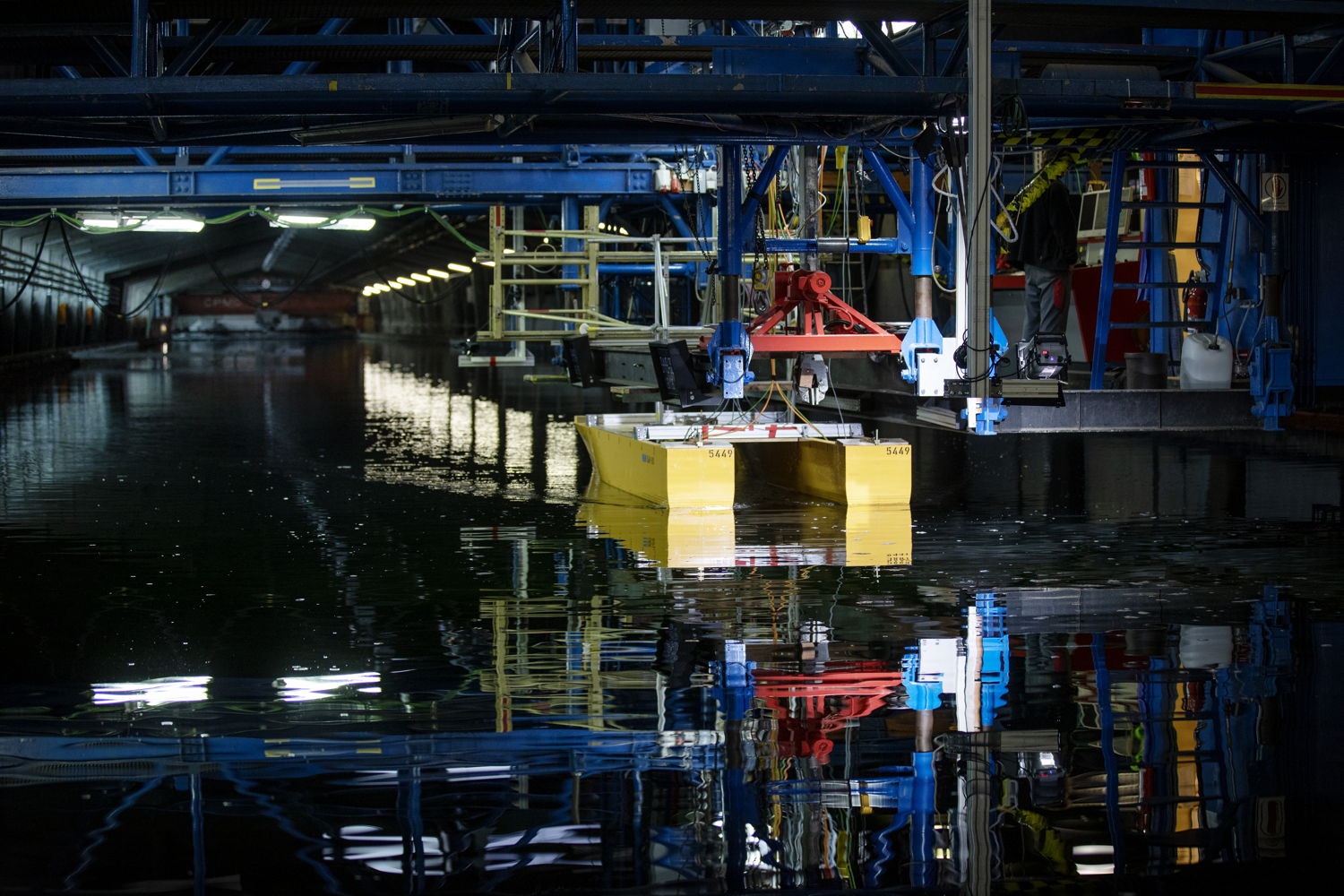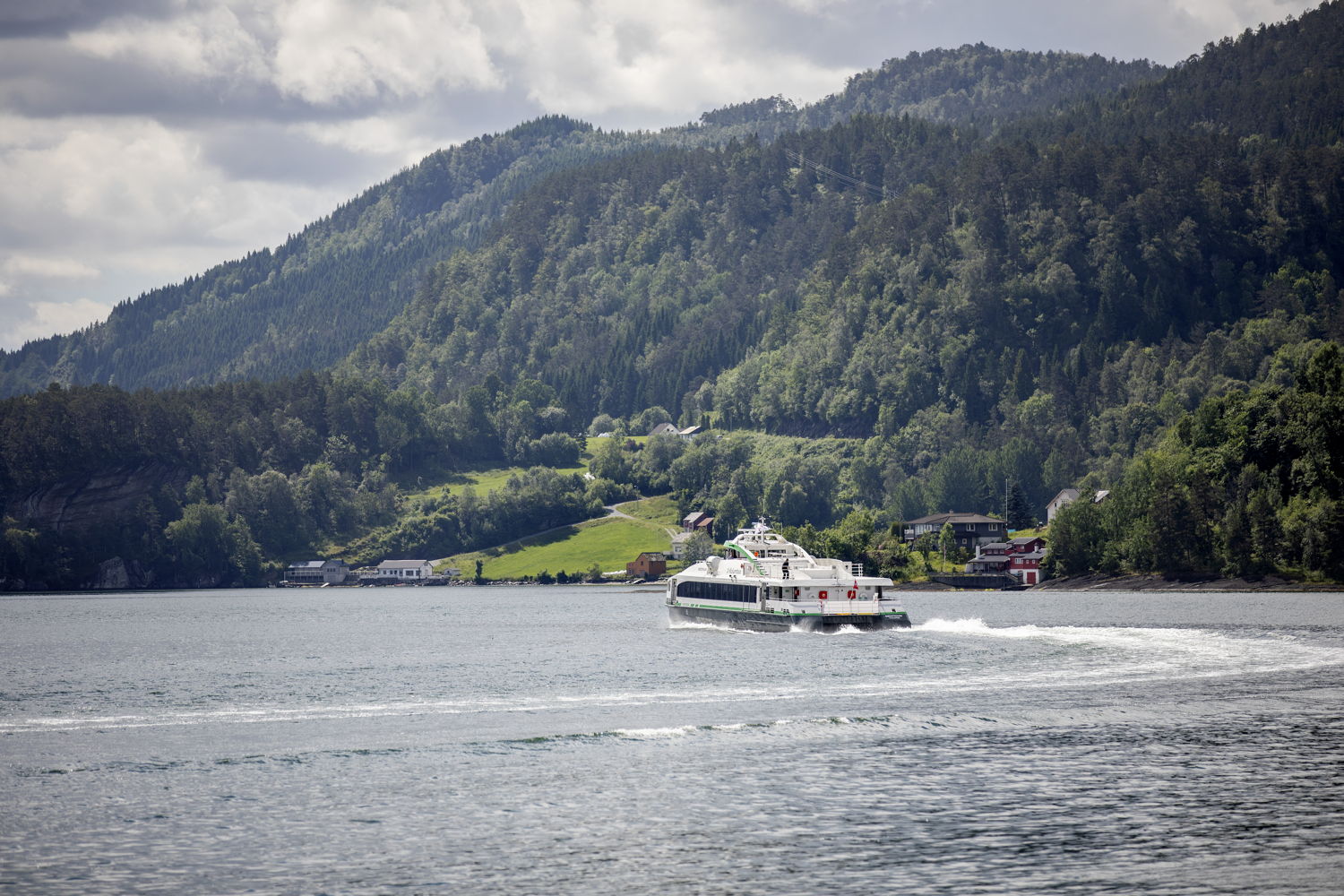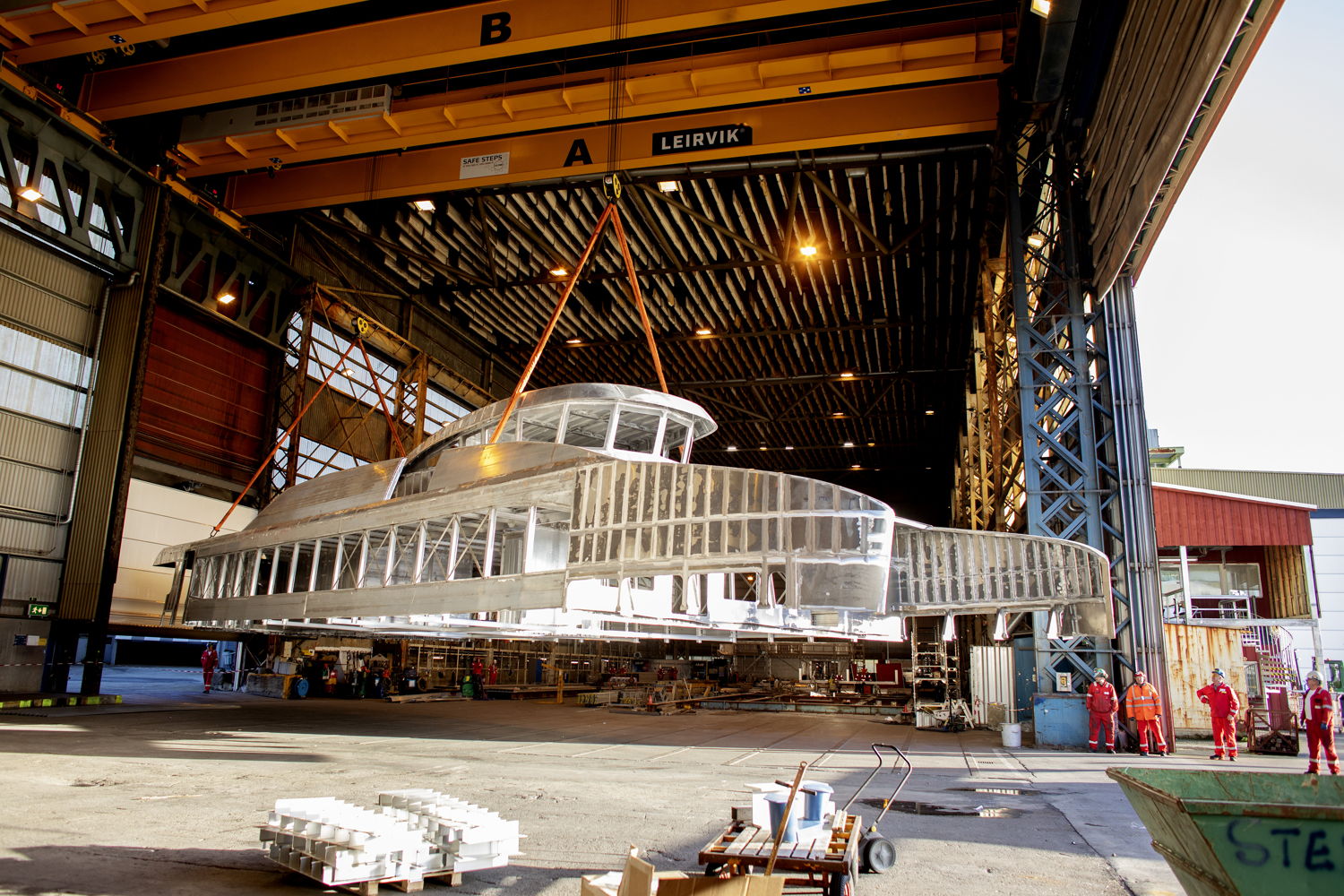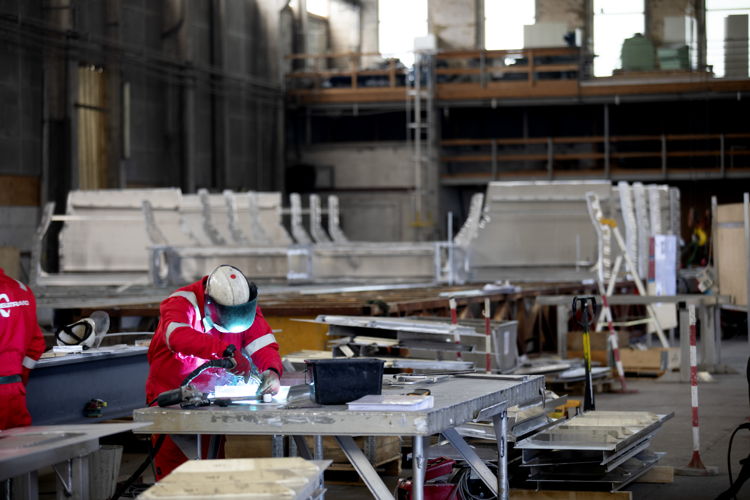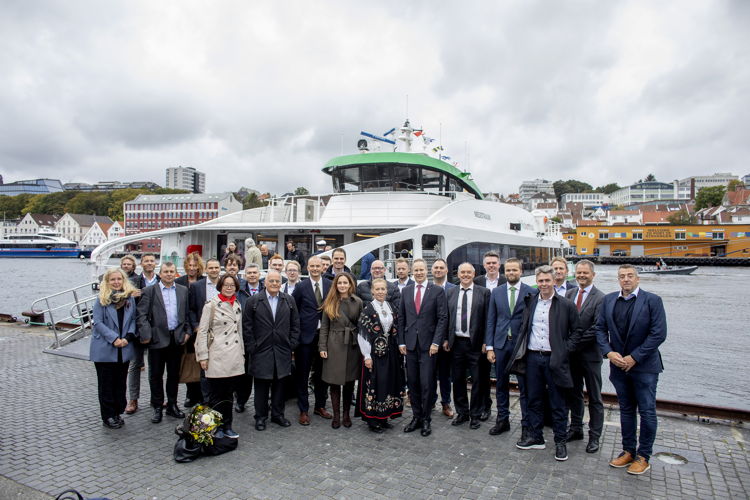Creator of world’s first fully electric fast ferry announced as a finalist in the 2023 European Sustainable Energy Awards
Battery-powered Medstraum vessel, developed as part of the TrAM (Transport: Advanced and Modular) project, allows commuters in the Stavanger region, Norway, to travel with zero emissions and is paving the way for climate-friendly fast ferries worldwide.

Using this ferry, the first of its kind, on the route between Stavanger in Rogaland County and Hommersåk will reduce emissions by a projected 1 500 tonnes of carbon per year, the equivalent of taking 30 buses off the road, and represents an important step towards the region’s climate goals. With nine return trips per day, the ferry carries approximately 400 passengers daily.
‘We depend on fast ferries here in our county,’ explains Marianne Chesak, Mayor of Rogaland County.
However, while they constitute a vital component of the local public transport network, the ratio of CO2 emissions to passenger kilometres travelled is very high for fast ferries, and in some cases can be even higher than airplanes. Before the development of the Medstraum, fast ferries and car ferries accounted for 56% of emissions from all public transport in the region.
While battery power was already used in some slower ferries, many people believed that it could not power fast ferries because of their weight and the amount of energy required.
‘If the technology doesn’t exist, we have to innovate it, and this is the result,’ says Edith Nøkling, CEO of local transport company Kolumbus, to which Medstraum belongs. ‘What we’ve achieved is to show that batteries are a solution for transport at sea, also for fast-going vessels,’ she explains.
This innovation was made possible by collaboration between different partners across Europe and within Norway, as part of the TrAM (Transport: Advanced and Modular) project funded by the EU’s Horizon 2020 programme. Initial tests took place in Hamburg, and the vessel itself was built at the Fjellstrand yard in Norway.
As Edith explains, ‘In this project, technological innovation has been high on the agenda. With a brand-new propulsion system, low-weight aluminium modules and hull forms derived from research on hundreds of examples, Medstraum has been tailored to optimise energy efficiency.’
Modular design is key to the success of the project. While ships are traditionally built ‘one by one’, the TrAM team drew inspiration from the car industry, which uses more modular practices, where you can ‘take bits and parts of this boat and build new boats with the same technology,’ explains Marianne. ‘This makes it possible to reduce the manufacturing and engineering costs for the next vessels.’
Not only does this original design result in reduced CO2 emissions, it means a more comfortable travel experience for passengers.
‘Being on Medstraum is like being on a sailboat,’ according to Marianne, pointing out that there is none of the noise or pollution usually associated with ferries. ‘You can sit outside and enjoy the sun with only the sound from the water.’
Now that the team behind TrAM has proven that this ferry is possible, their sights are set on scaling up. If Kolumbus were to replace their other ten fast ferries with electric ones, they would save 4.6 million litres of fuel annually.
But Edith also hopes that the technology will be picked up further afield: ‘It should be possible for more cities and regions to get zero-emission fast ferries.’
The fact that they have developed processes that keep costs and production times down, coupled with the modular design of the ferry, make it particularly attractive for others hoping to replicate their success.
‘We have guests from all over the world coming to Stavanger to see this smart and green mobility system that is taking place here with this vessel’, says Marianne.
The project is a success story for EU funding towards innovative projects tackling climate change. The new technology required made it an expensive investment, and thanks to the support of the EU, business partners from across Norway were able to collaborate and develop a concrete workable solution. This initiative directly supports the European Green Deal and REPowerEU Plan.
TrAM is one of three finalists shortlisted for the European Sustainable Energy Awards 2023 in the Innovation category. The award recognises outstanding ongoing or recently completed EU-funded projects that show an original and innovative path towards the clean energy transition.
TrAM is one of three finalists shortlisted for the European Sustainable Energy Awards 2023 in the Innovation category. The award recognises outstanding ongoing or recently completed EU-funded projects that show an original and innovative path towards the clean energy transition. The other finalists in this category are Alqueva Floating Solar Farm from Portugal and the pan-European project STEP (Solutions to Tackle Energy Poverty).
Alqueva Floating Solar Farm is a hybrid energy project bringing together solar energy, hydropower and battery storage. STEP is using social innovation to tackle energy poverty in nine EU countries.
Europe’s best clean energy projects and leaders celebrated in the EUSEW Awards
The European Sustainable Energy Awards (EUSEW Awards) recognise outstanding individuals and projects for their innovation and efforts in energy efficiency and renewables. Prizes will be awarded in three categories: Innovation, Local Energy Action, and Woman in Energy. Winners are announced during the EUSEW Awards Ceremony in June 2023 in the presence of European Commissioner for Energy Kadri Simson and a high-level jury.
The winners will be decided by an online public vote, which is open now until 11 June.
EUSEW 2023
The European Sustainable Energy Week (EUSEW), the biggest annual event dedicated to renewables and efficient energy use in Europe, takes place on 20 - 22 June under the theme 'Accelerating the clean energy transition – towards lower bills and greater skills'. The event will bring thousands of sustainability stakeholders together to explore policy topics related to protecting European consumers from price volatility and sharpening their skills to produce and save energy within the current energy context.
Registrations for onsite attendance in Brussels and online participation are now open.
For interview requests with the EUSEW Awards finalists or additional media information, please contact media@eusew.eu
